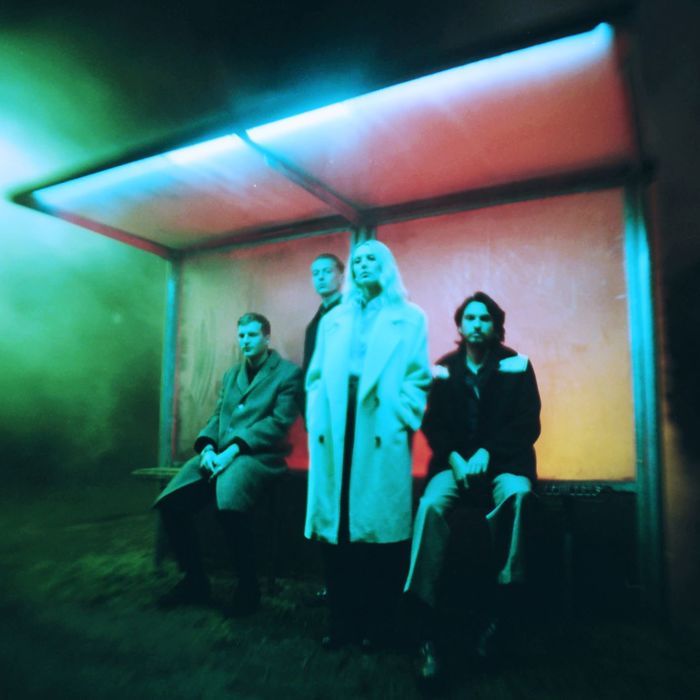Anti-music: Autechre’s Confield
Columnist Rishi Sharma examines why IDM is here to stay
Electronic music has always been the ‘odd one out’. Unlike the cool, long-haired pioneers of rock music, the first electronic musicians were, invariably, geeks. There’s a reason why early Queen records proudly declared that “no synthesisers were used on this record”. Of course, over the years, ‘synthesiser music’ went from something weird and experimental to something you’d hear on the radio or see on MTV. Despite this, the experimenters never went away, and in 1990s Britain, some artists attached to Warp Records in Sheffield began their project. One of those artists was, and still is, called Autechre (pronounced Aw-teck-er). They were two friends from Rochdale called Rob Brown and Sean Booth. And they were good.
The genre label of ‘IDM’ (‘Intelligent Dance Music’) given to Warp Records was ridiculed by the artists and their listeners, but it stuck. By their own admission, Rob and Sean didn’t start out trying to make ‘intelligent’ music – they met as graffiti artists trading bootleg mixtapes – and neither did the genre itself. Stemming from the late eighties rave and techno scene in England, IDM was still fundamentally danceable. After a slew of classics, Autechre took a left turn, releasing more experimental albums such as Chiastic Slide and LP5. In the new millennium, they dropped their masterpiece, Confield.
“The album is a conscious rejection of music.”
The opening two tracks of the nine on Confield, while excellent, don’t really prepare you for the rest of the album at all. The first, the intensely meditative “VI Scose Poise” sounds like a pair of ball-bearings rolling slowly around the inside of your head. It’s really beautiful, and I’d recommend enjoying it with a good pair of headphones. The second, “Cfern”, is a somewhat sparse track with a lot of odd buzzing; it sounds like a smartphone ringtone except the smartphone is broken.
The third, “Pen Expers”, is where the album starts properly. After introducing itself with a high-pitched tone reminiscent of dial-up internet, a thumping drum beat comes in out of nowhere, continuing semi-regularly before fizzling out and then resurging again. This is all wildly, wildly off-tempo – Terence Fletcher from Whiplash would be furious – but that’s the point. The album is a conscious rejection of music. Ideas like ‘rhythm’, ‘tempo’ and ‘melody’ are flirted with, only to be discarded. One reviewer described it as like a CD skipping over and over, and they’d be right.
What makes the song interesting, though, is how the remainder of it is structured around this drum beat which returns, hits you like a stack of bricks, and then leaves at extremely regular intervals. You begin to understand that the chaos is deliberate. After a while, your brain gets used to the off-kilter drums, but the track layers more and more elements onto itself, challenging you. It progressively mutates to a behemoth of electronic sounds, none of which make sense on their own. There’s an old and slightly grotesque saying about how, if you want to boil a frog, you can’t just throw it in boiling water, or it’ll jump out. You have to turn the heat up slowly and progressively, and that is exactly what’s happening. Over the song’s seven minutes, Autechre entice you into their chaotic and richly layered world, one loop at a time.
The album’s sound is cold and mechanical, almost dystopian. This is the music of machines, and Autechre want you to know it. “Sim Gishel” sounds like a rave track from 20001, not an album song from 2001. “Parhelic Triangle” reminds me of that terrifying Black Mirror episode with the electronic bees: it feels like you’re being swamped by them. However, the album’s closer, “Lentic Catachresis” is its coldest. After a steady beat takes you through the first two minutes, it’s ripped away from you entirely, and the track enters a sort of freefall. Over the final five minutes, the song becomes, unlike the others, progressively more minimalistic, before, like an old piece of hardware, it glitches out and dies.
Part of loving this album as much as I do involves, inevitably, defending it from accusations of pretentiousness. The ‘Intelligent Dance Music’ moniker and admittedly ridiculous track titles don’t exactly help. It’s not a flawless album, either: “Eidetic Casein” has always been a skip for me. That being said, one of the reasons I like this album so much is how, despite its coldness and occasional pretentiousness, the attachment I feel to it is deeply personal. Because it’s so abstract and open to interpretation, everyone feels a different way about Confield. For example, I think the ideal listening space for “Sim Gishel” is when you’re walking to a train on the London Underground. I’m sure some Autechre fans think that statement is delusional.
So, give it a go. Plenty of people I know – including people who’ve listened to a lot more music than me, and whose opinions I have enormous respect for – have hated this album, and you can hate it too. I’m alright with that. Or maybe, like fifteen-year-old me, you’ll go off and listen to this record and feel bewildered. So you listen to it again. And again. And again.
 News / Uni Scout and Guide Club affirms trans inclusion 12 December 2025
News / Uni Scout and Guide Club affirms trans inclusion 12 December 2025 News / Pembroke to convert listed office building into accom9 December 2025
News / Pembroke to convert listed office building into accom9 December 2025 News / Cambridge Vet School gets lifeline year to stay accredited28 November 2025
News / Cambridge Vet School gets lifeline year to stay accredited28 November 2025 Features / Searching for community in queer Cambridge10 December 2025
Features / Searching for community in queer Cambridge10 December 2025 News / Uni redundancy consultation ‘falls short of legal duties’, unions say6 December 2025
News / Uni redundancy consultation ‘falls short of legal duties’, unions say6 December 2025









